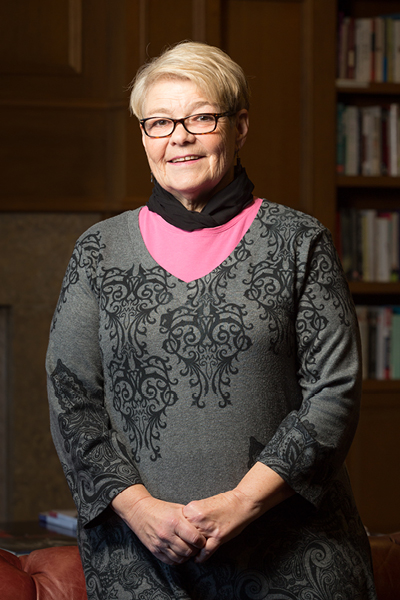Leadership Lecture to highlight methods for assessing community readiness for action, communication with diverse stakeholders
UA Little Rock Downtown will host a lecture Oct. 17 on the use of citizen involvement in shaping policies and processes that affect everyday life and are paramount to a vibrant democracy.
Dr. Christina Standerfer, professor emerita and former faculty director of the Office of Community Engagement at the University of Arkansas Clinton School of Public Service, will give the talk, “Listening to the People: Assessing Community Readiness for Collective Action,” at 6:30 p.m. Thursday, Oct. 17, at UA Little Rock Downtown, 333 President Clinton Ave.
The talk is part of the University of Arkansas at Little Rock Department of Applied Communication Leadership Lecture series. Admission is a suggested donation of $20, or $5 for students, staff, and faculty. Attendees may register at this link.
Standerfer’s lecture will draw upon more than 20 years of experience conducting research and working in collaboration with nonprofit and governmental organizations to build healthy communities.
“There is a need for scholars and practitioners to understand and assess community readiness for action in order to set realistic expectations concerning the efficacy of communication methods used to engage them,” Standerfer said.
Using analysis of data gathered from over 20 communities across Arkansas, Standerfer will present a matrix of factors to be considered to assess community readiness for collective action. Standerfer will also discuss a model of progressive steps for community readiness for action that can be used to determine appropriate communication methods for engagement.
Standerfer has published articles on nonprofit accountability, the changing nature of civil society, and the importance of understanding the role of public discourse in facilitating social justice.
Standerfer’s most current work focuses on ways to curb rising rates of diabetes. She has been awarded grants from the Arkansas Department of Health and the Kettering Foundation to conduct focus groups, interviews, and round table discussions to gather and synthesize diverse perceptions of the disease and ways to best address it.
